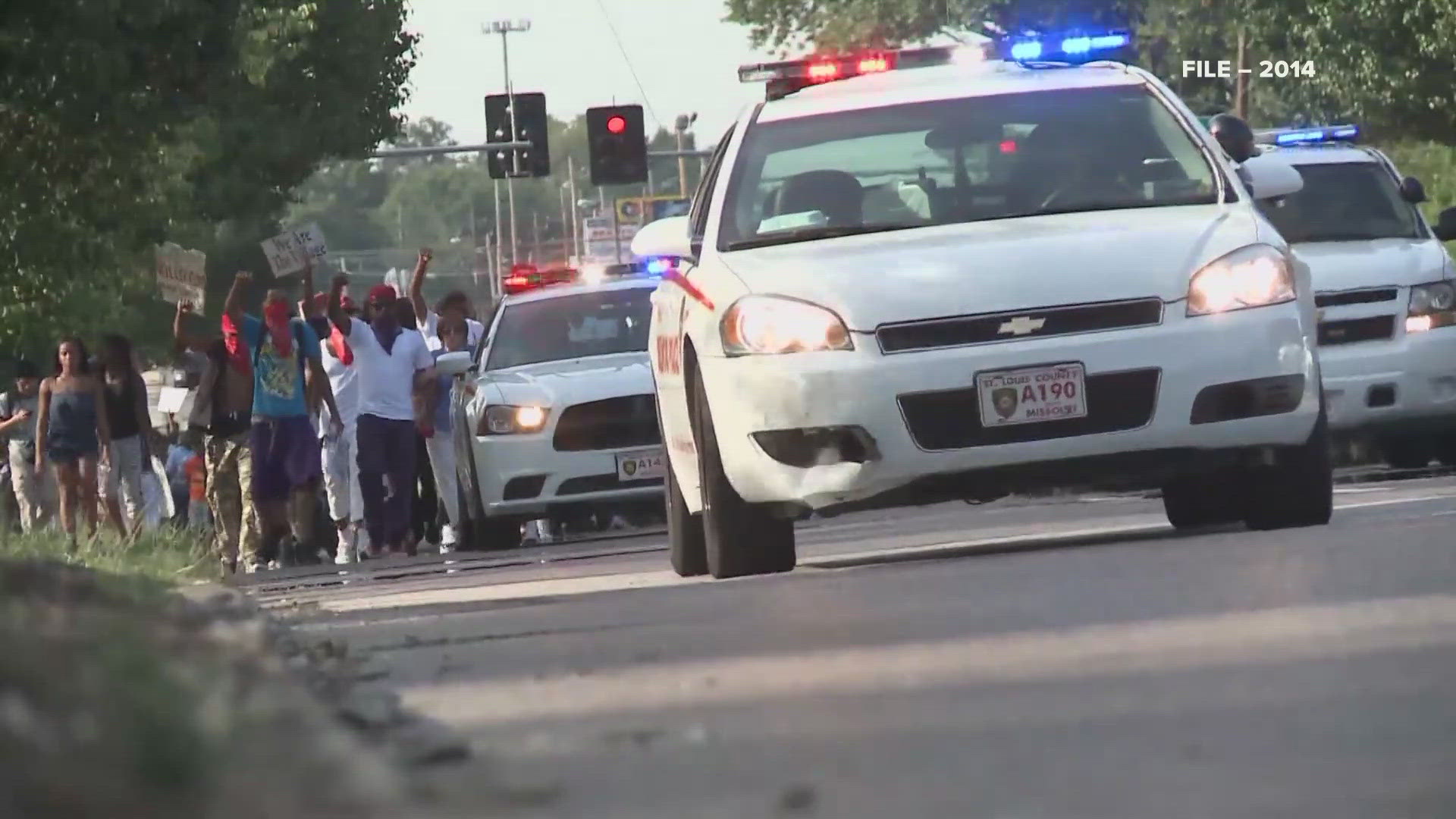FERGUSON, Mo. — Friday marks 10 years since Michael Brown was killed by Ferguson police officer Darren Wilson in 2014.
5 on Your Side sat down with Dr. Gladys Smith of the St. Louis Association of Black Psychologists, a group that provided treatment to Ferguson residents and protestors in 2014, just days after Brown was killed. Smith told our reporter, Sydney Stallworth, mental health support was crucial and necessary in the midst of pain and unrest.
We asked Smith what she heard from Ferguson residents 10 years ago and how Brown's death is still affecting many residents today.
Smith, a somatic trauma therapist, told our reporter, “What we have been taught to do is to push through it... and just keep going.”
But, she says, it's important to stop and seek self-care when you're exposed to traumatic events.
Smith said she had just joined the St. Louis Association of Black Psychologists in 2014. Shortly after she became involved with the organization, Brown was killed.
“The individuals that were protesting, they needed rest, they needed reprieve," she said. "So, the church allowed us to come and give them solace.”
The group held sessions for residents living on Canfield Drive near the Canfield Apartments, where Brown was killed. They hosted yoga sessions to talk about how residents could begin to heal their minds by moving their bodies.
Our reporter asked what residents told Dr. Smith they were feeling after Brown's death while she was providing treatment in 2014.
“That their lives didn’t matter.” Smith said. “They told me that they felt it didn’t mater what they did. They’ll never been seen. No matter how hard they work or what they do, they’ll never be seen. But, mainly that justice wouldn’t be served.”
Stallworth said, "Today we have more names to chant, more protests to hold. It feels very familiar to all of us. What sort of feelings can this stir up?
Smith describes a feeling she says many Black Americans felt at that time, and have felt for decades.
"Living through racial oppression and police brutality, it affects your mind. It affects your body and your health." Smith said. “How you feel is anticipatory anxiousness. You don’t know what’s going to happen but you know something’s going to happen and you don’t have control over it. I don’t even have to tell you, imagine feeling like this every day.
“That has a great impact on our health as black and brown people.”
Stallworth said, "Ten years later, there's still so much pain. How do you begin to heal from something like this?
“The first thing is to be present and to be aware," Smith said. "Talk about what’s going on... Talking to our children at their age level, not at our age level.” She adds it's important to ask questions like, “I know this may have impacted you. How do you feel?”
She also says with the use of exercises like Emancipation Circles or Sawubona Healing Circles, which the Association of Black Psychologists facilitated in Ferguson for residents in 2014 after Brown was killed, can help create a safe space for people to express their frustration, grief and struggles.
Smith says after the circle, “We leave on a different note, knowing that we’re not alone.”

